Reconstruction Era
1/24
There's no tags or description
Looks like no tags are added yet.
Name | Mastery | Learn | Test | Matching | Spaced |
|---|
No study sessions yet.
25 Terms
Carpetbagger
A northerner who went to the South immediately after the Civil War; especially one who tried to gain political advantage or other advantages from the disorganized situation in southern states;
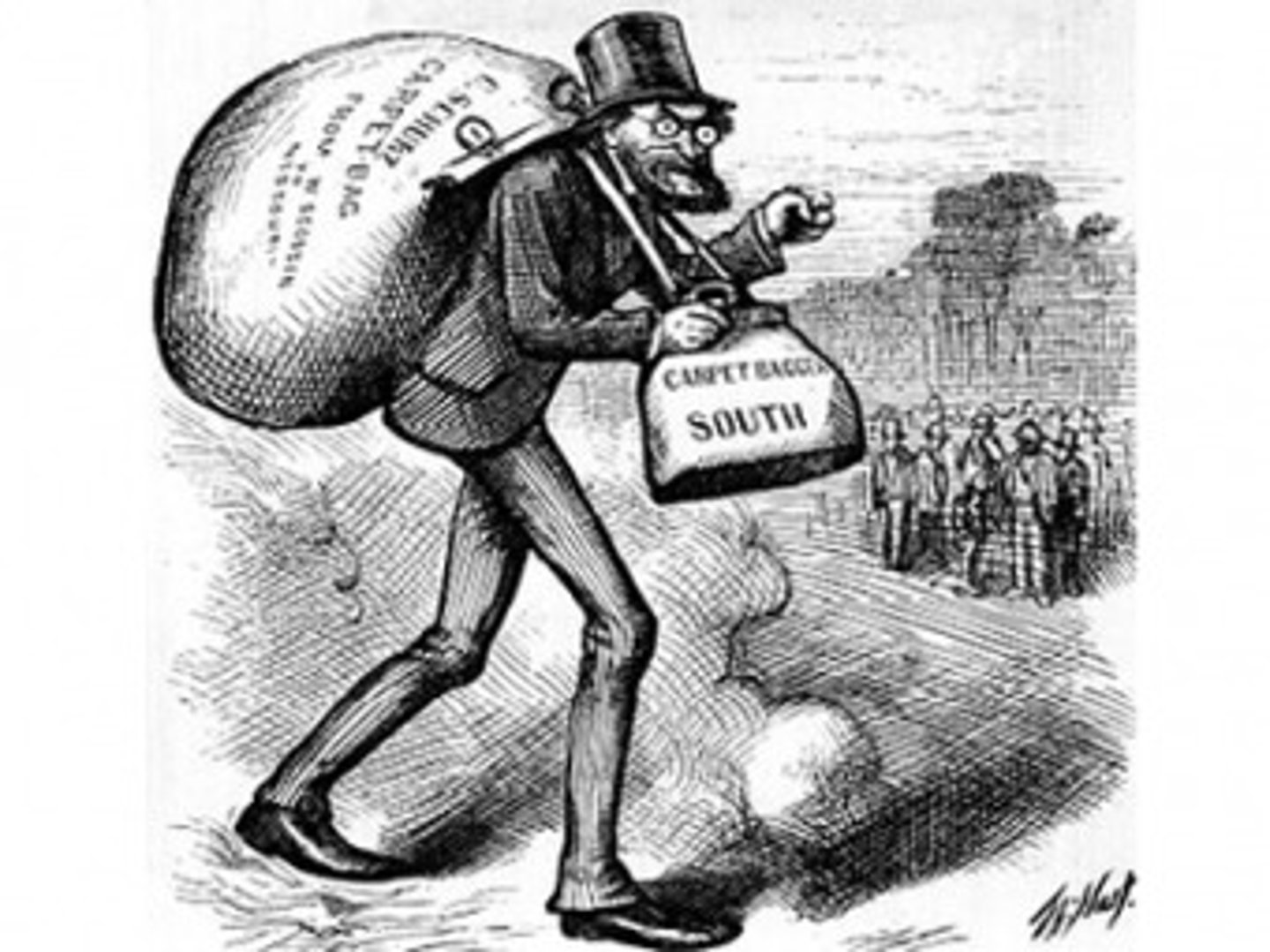
Scalawag
A derogatory term for Southerners who were working with the North to buy up land from desperate Southerners
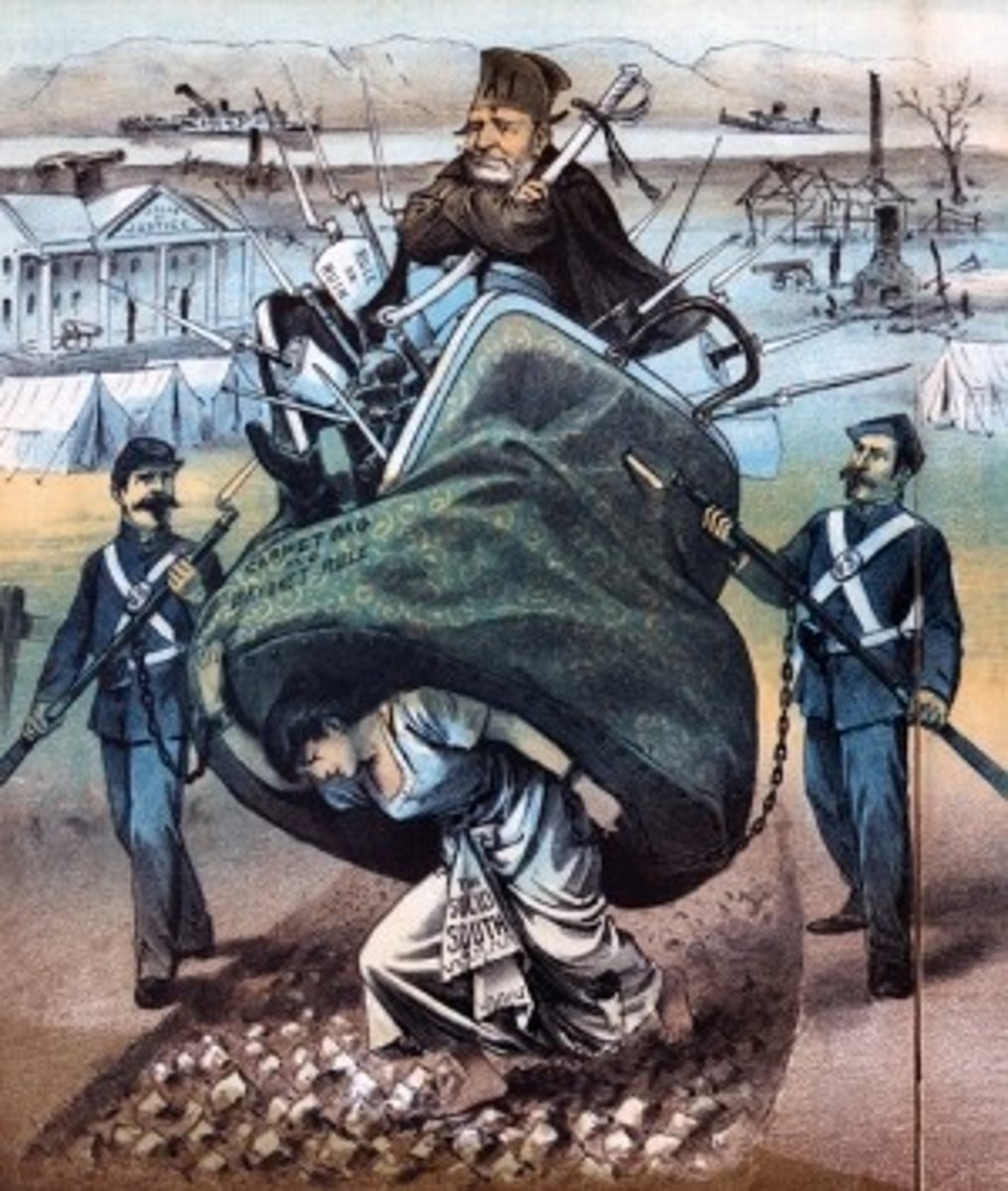
Jim Crow Laws
Laws designed to enforce segregation of blacks from whites in most Southern states after Reconstruction
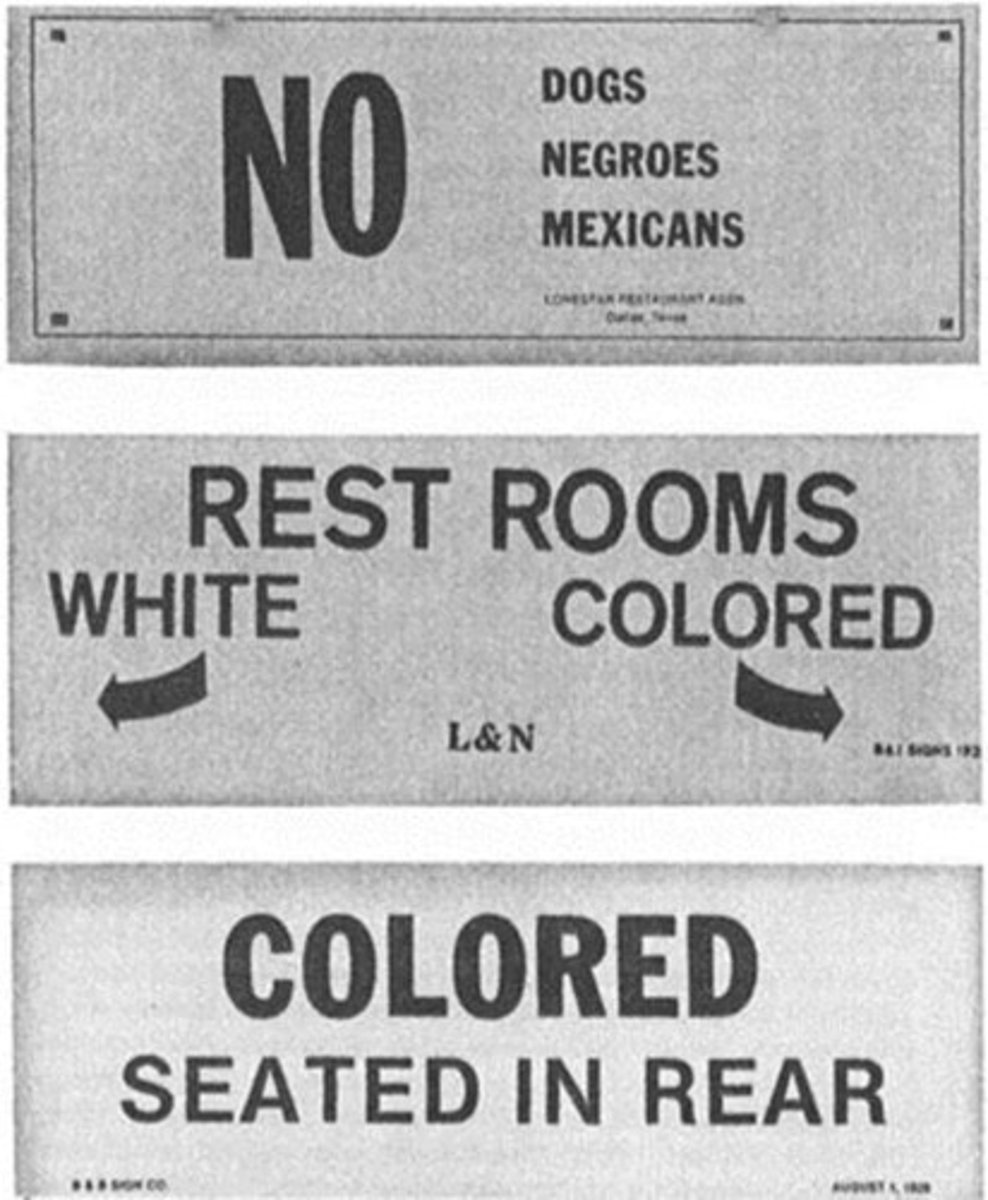
Radical Republicans
After the Civil War, a political group that believed the South should be harshly punished. Thought that Lincoln was sometimes too compassionate towards the South.

13th amendment
Abolished Slavery
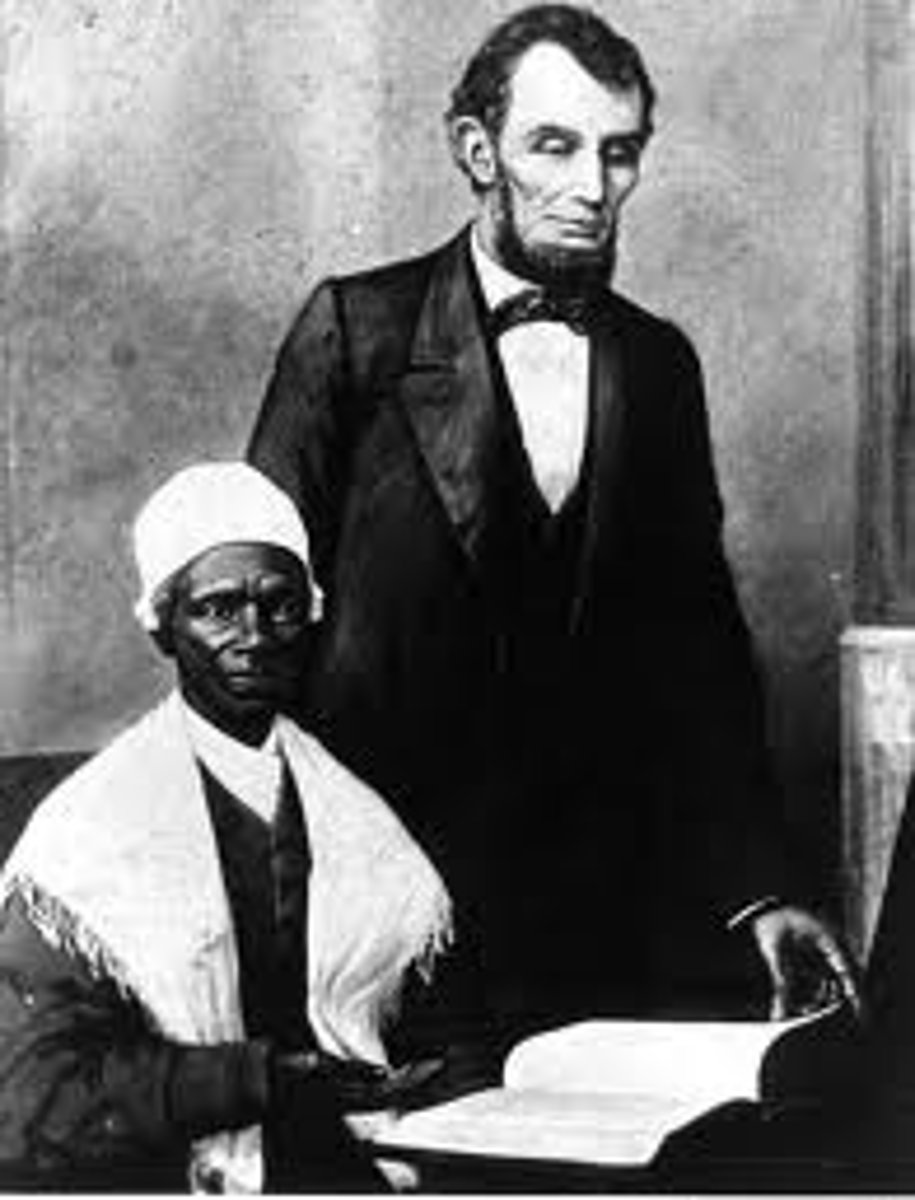
14th amendment
1) Citizenship for African Americans, 2) Repeal of 3/5 Compromise, 3) Denial of former confederate officials from holding national or state office, 4) Repudiate (reject) confederate debts

15th amendment
Citizens cannot be denied the right to vote because of race, color, or previous condition of servitude
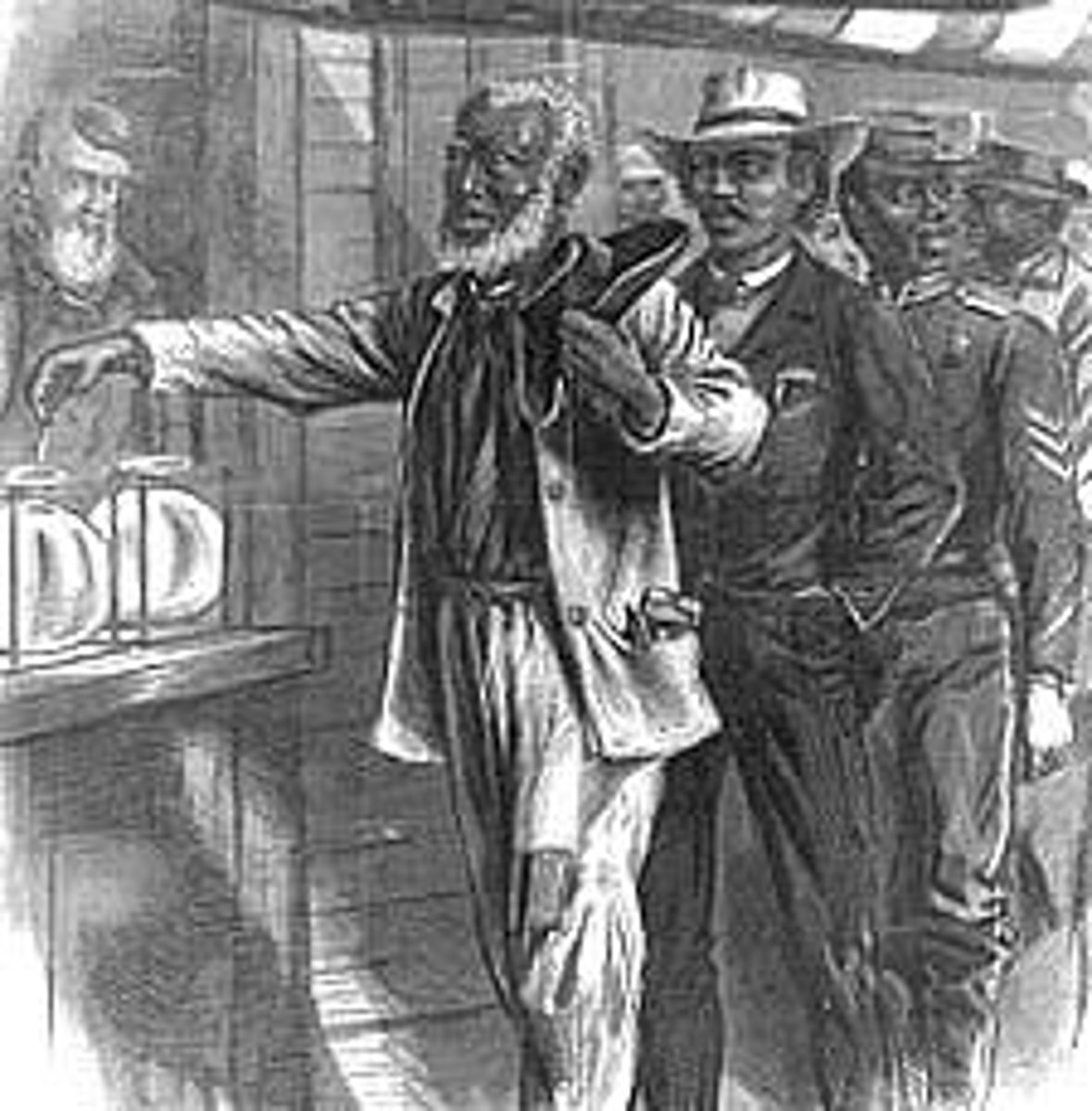
Black Codes
Laws denying most legal rights to newly freed slaves; passed by southern states following the Civil War
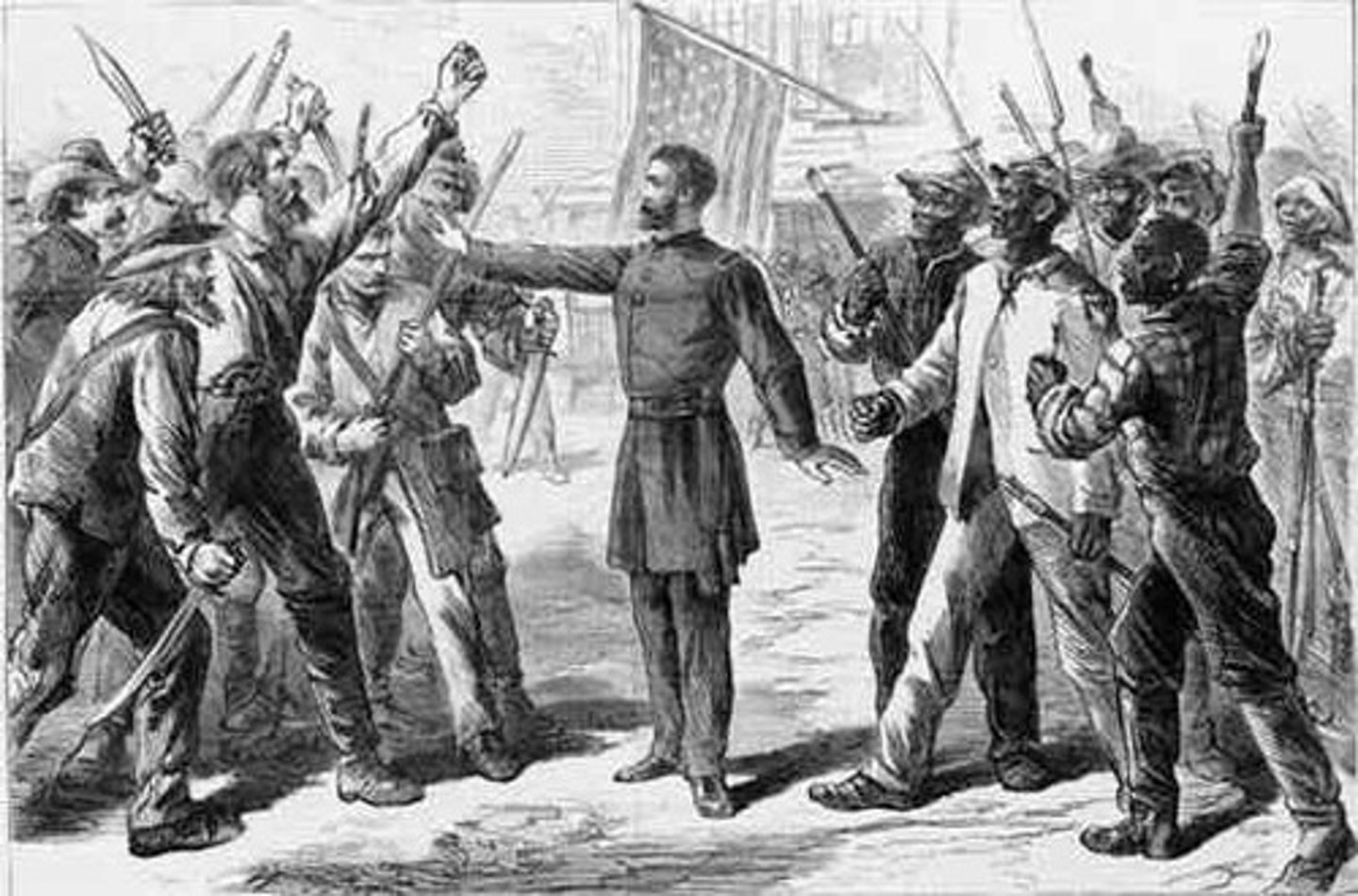
Compromise of 1877
Ended Reconstruction. Republicans promise 1) Remove military from South, 2) Appoint Democrat to cabinet (David Key postmaster general), 3) Federal money for railroad construction and levees on Mississippi river; as long as Hayes became the president
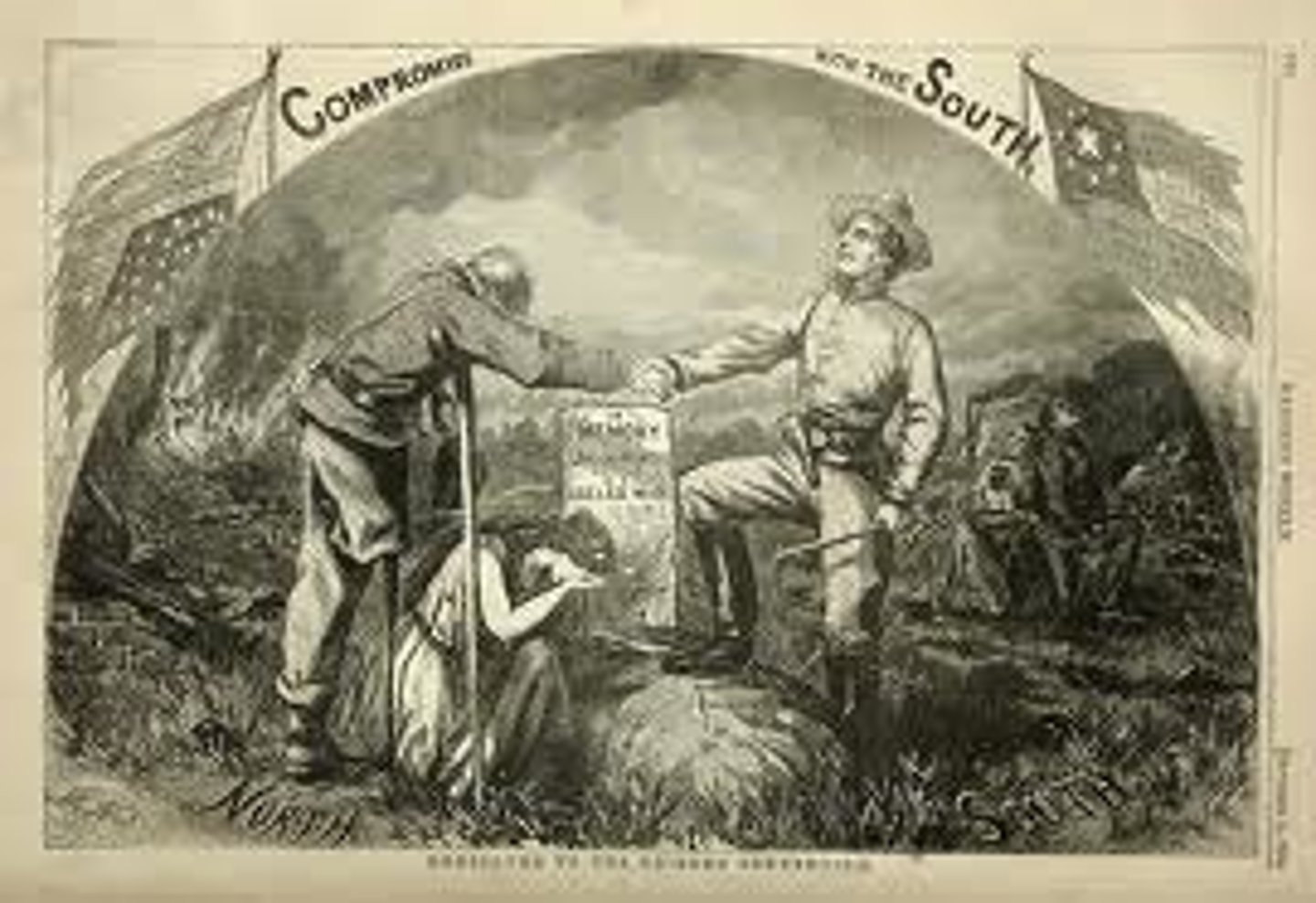
Plessy v. Ferguson
Court Case brought by African American, Homer Plessy, who was arrested for sitting in the "white only" section on a railroad car.
Supreme Courts ruled that separate but equal (segregation) was legal. Jim Crow Laws upheld as legal.
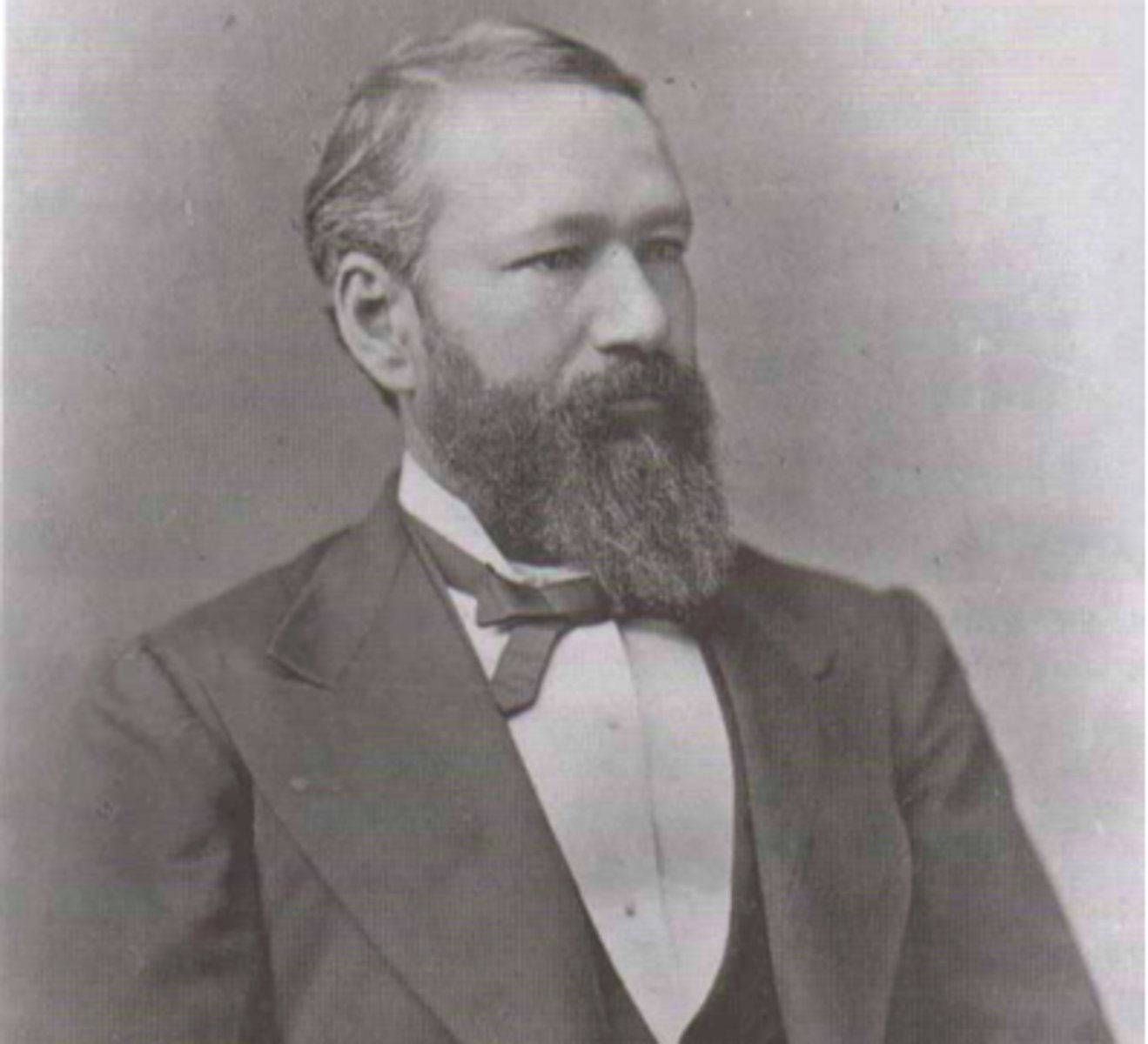
Andrew Johnson
17th President of the United States
During Reconstruction
Was brought up for impeachment
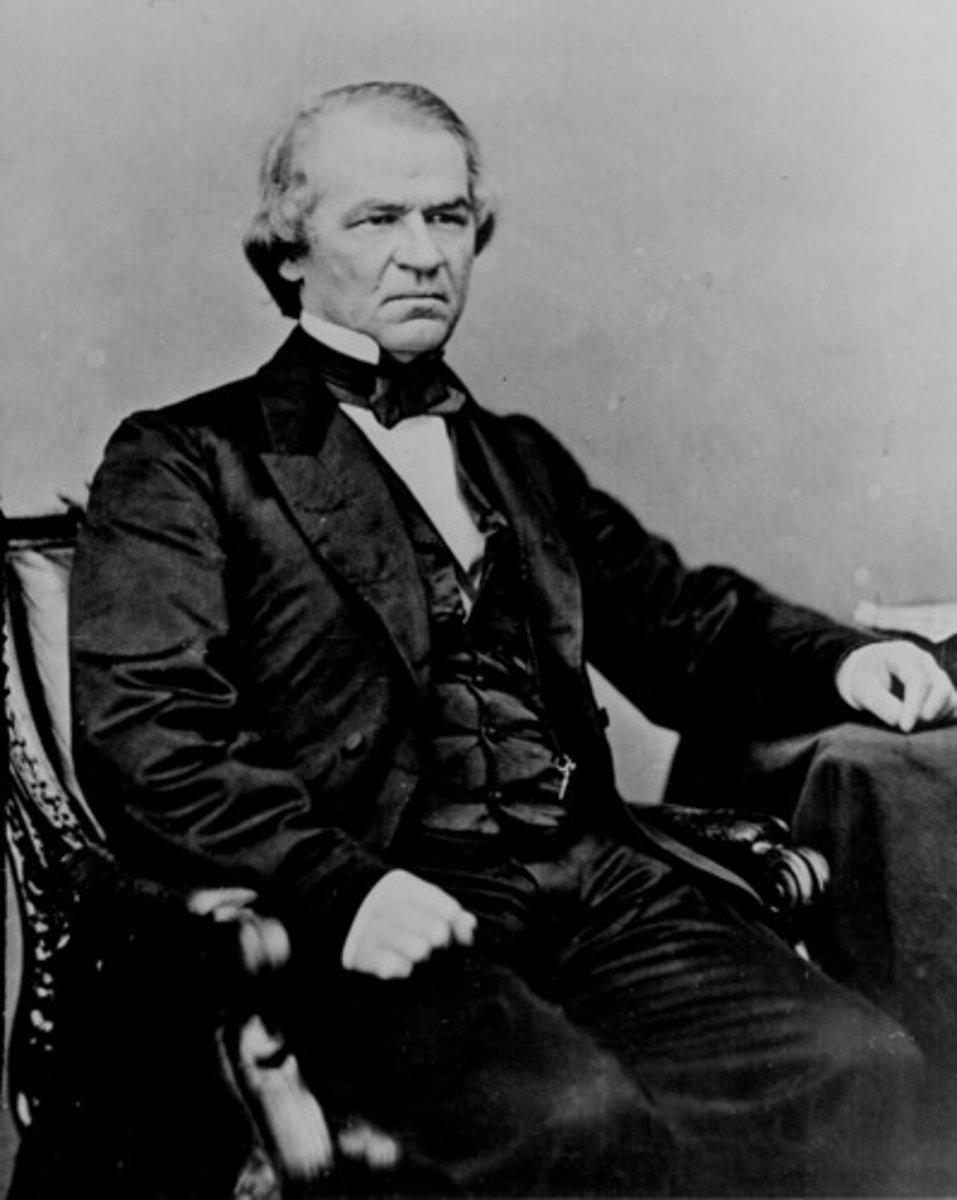
Ulysses S. Grant
an American general and the eighteenth President of the United States (1869-1877). Presidency was mired by corruption and scandal. Republican Party loses status as a result.
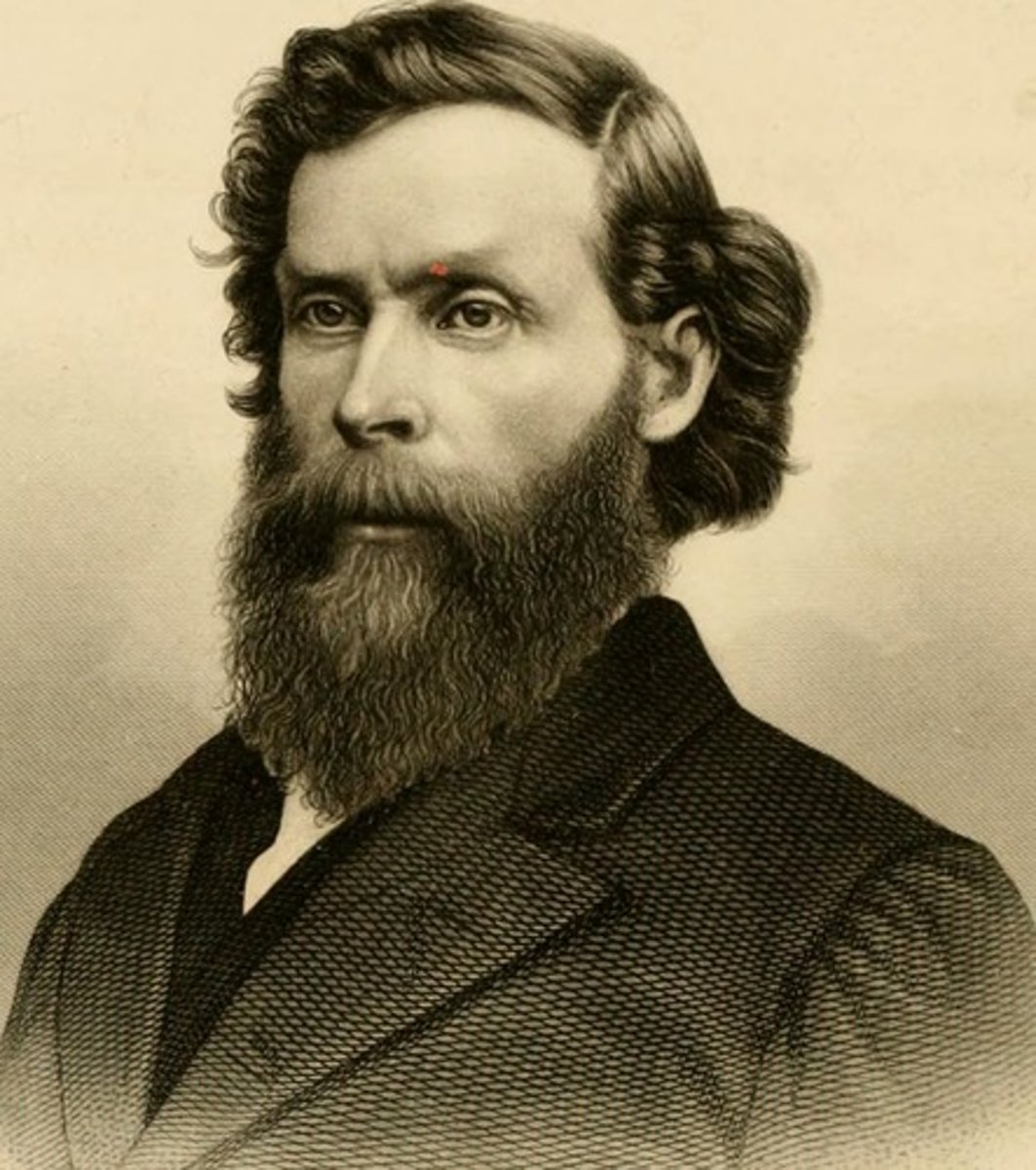
Rutherford B. Hayes
19th president of the United States, was famous for being part of the Hayes-Tilden election, most corrupt election in US history. Became president after Compromise of 1877.
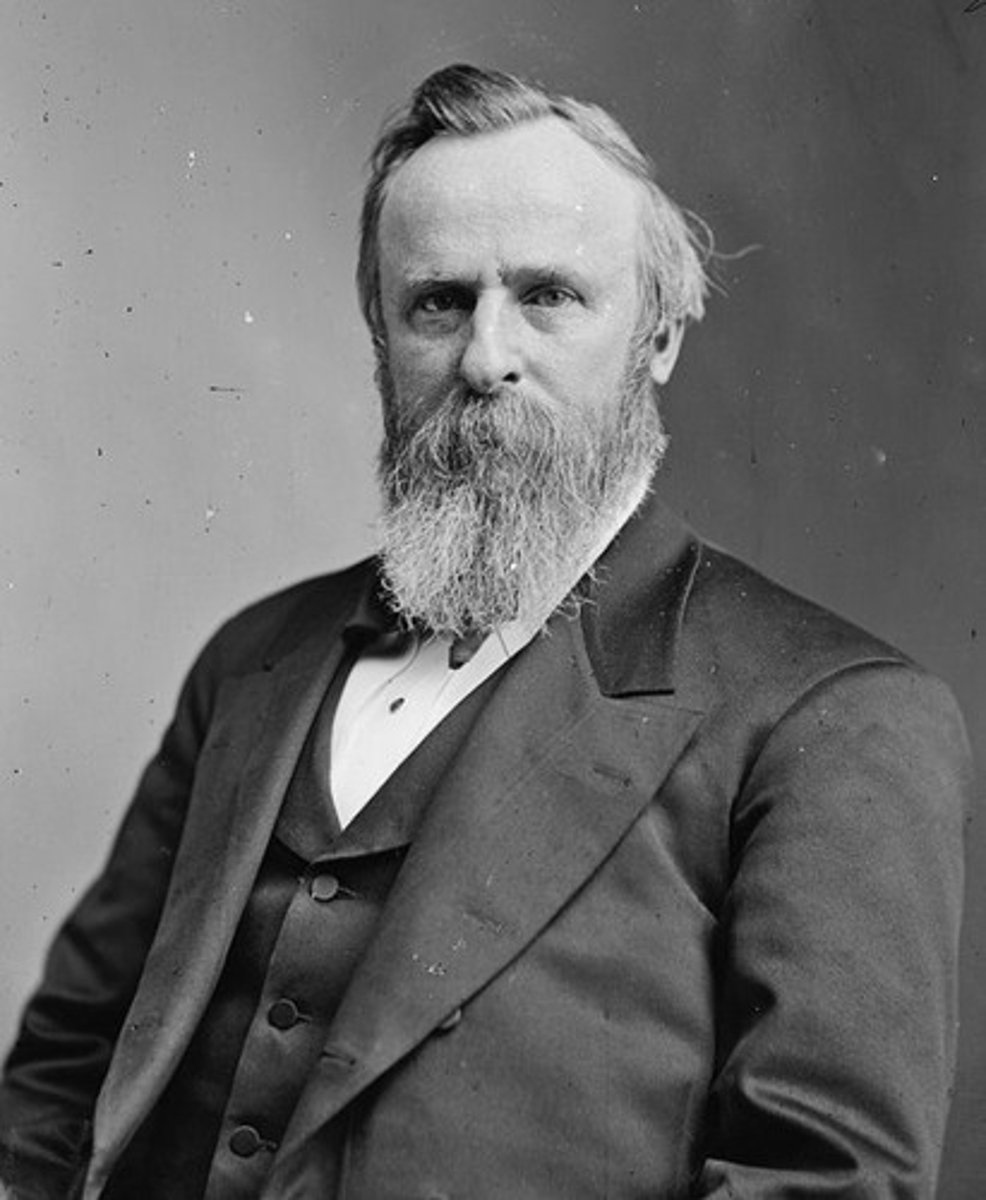
10% plan
This was Lincoln's reconstruction plan for after the Civil War. Written in 1863, it proclaimed that a state could be reintegrated into the Union when 10% of its voters in the 1860 election pledged their allegiance to the U.S. and pledged to abide by emancipation, and then formally erect their state governments. This plan was very lenient to the South, would have meant an easy reconstruction.
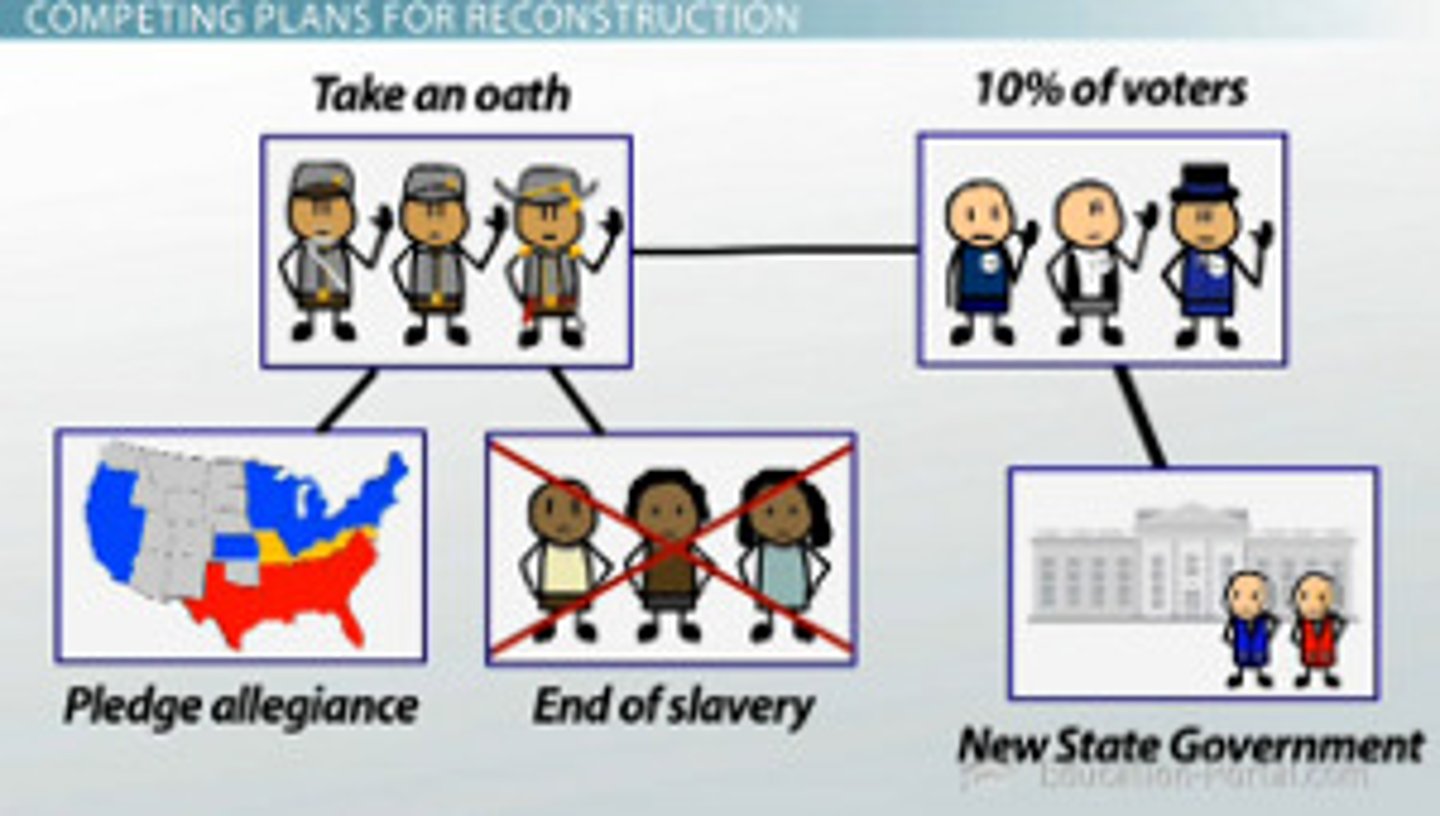
KKK
Stands for Ku Klux Klan and started right after the Civil War in 1866. They masked themselves and burned black churches, schools, and terrorized black people. They are anti-black and anti-Semitic.
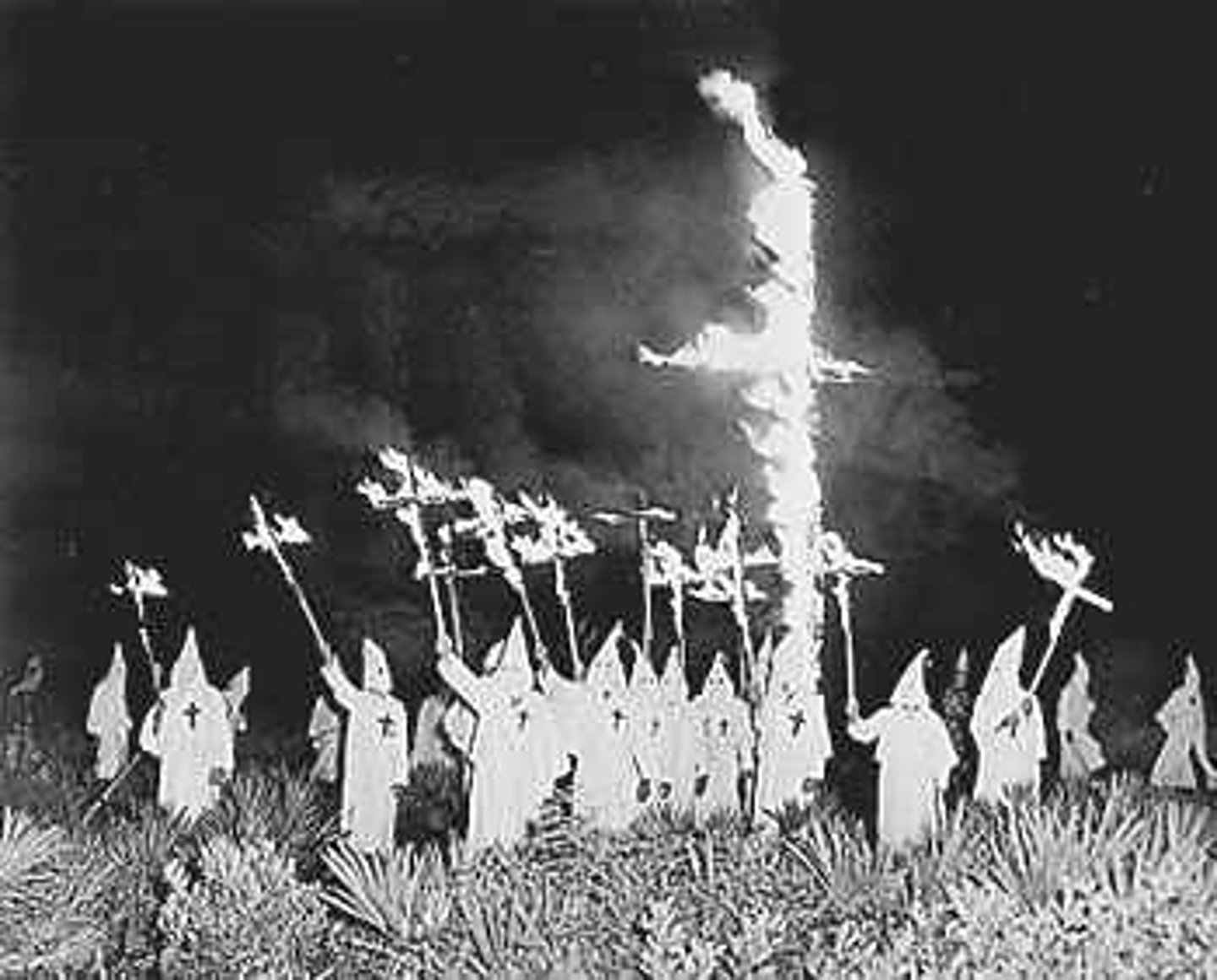
Grandfather Clause
A clause in registration laws allowing people who do not meet registration requirements to vote if they or their ancestors had voted before 1867.
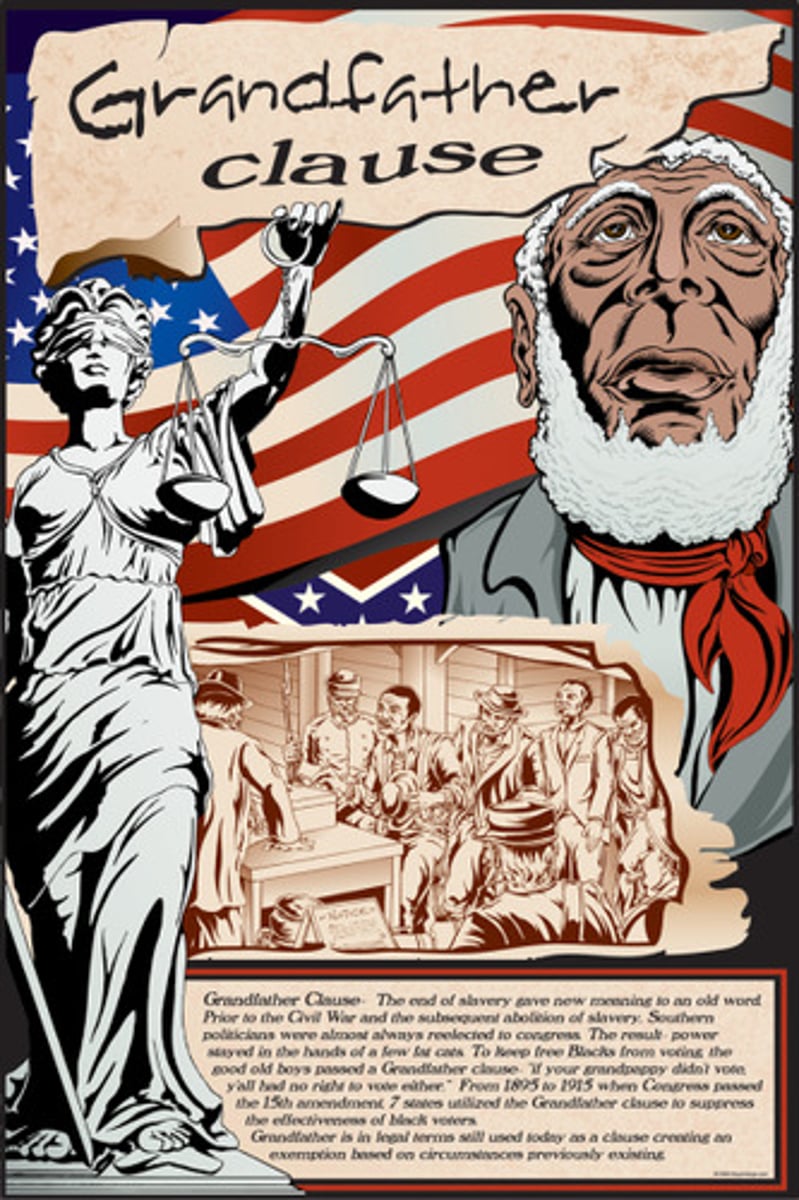
Poll taxes
Small taxes levied on the right to vote that often fell due at a time of year when poor African-American sharecroppers had the least cash on hand. This method was used by most Southern states to exclude African Americans from voting.
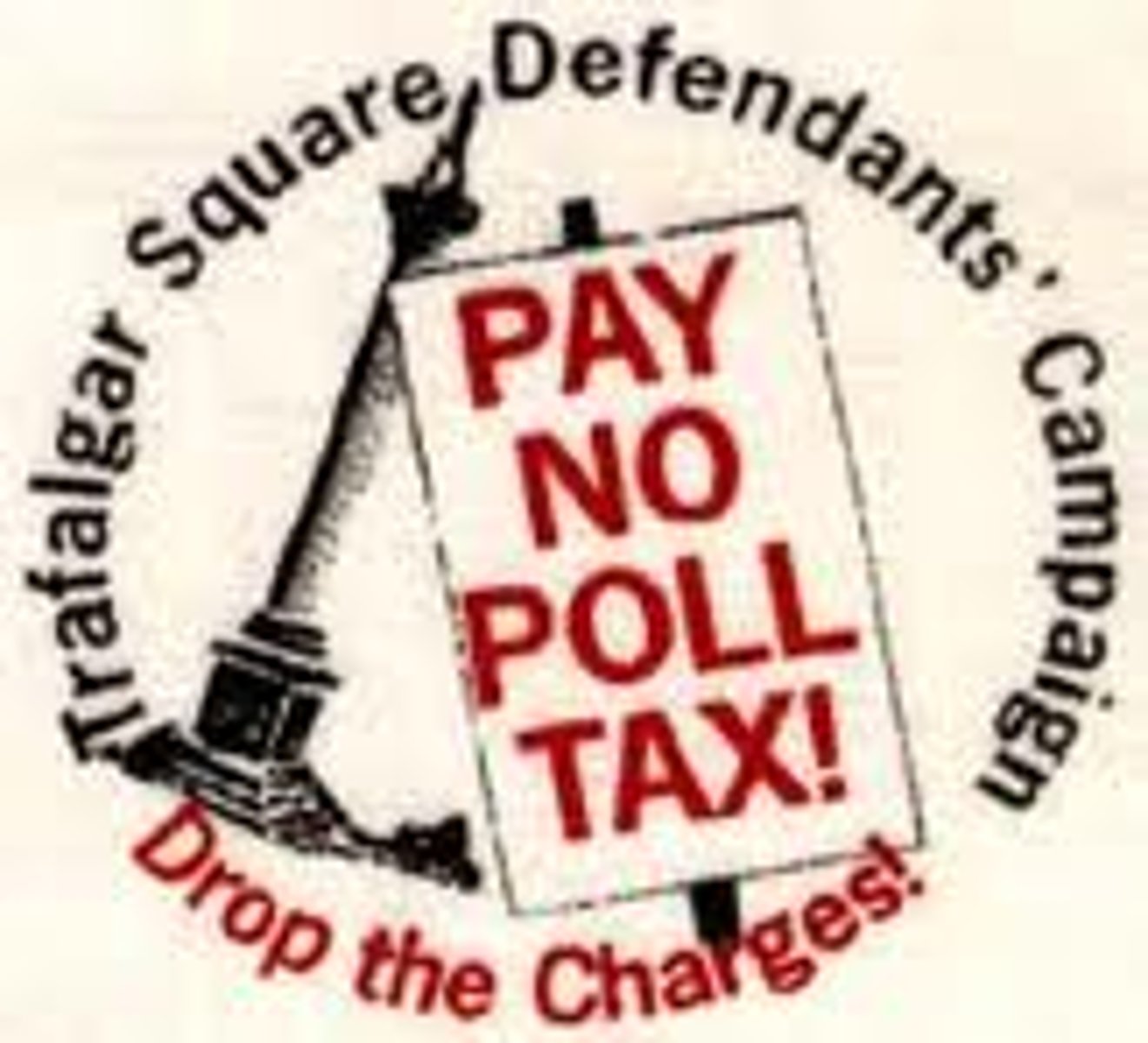
Civil Rights Act of 1866
Federal law granting citizenship to former slaves; passed over Johnson's veto.
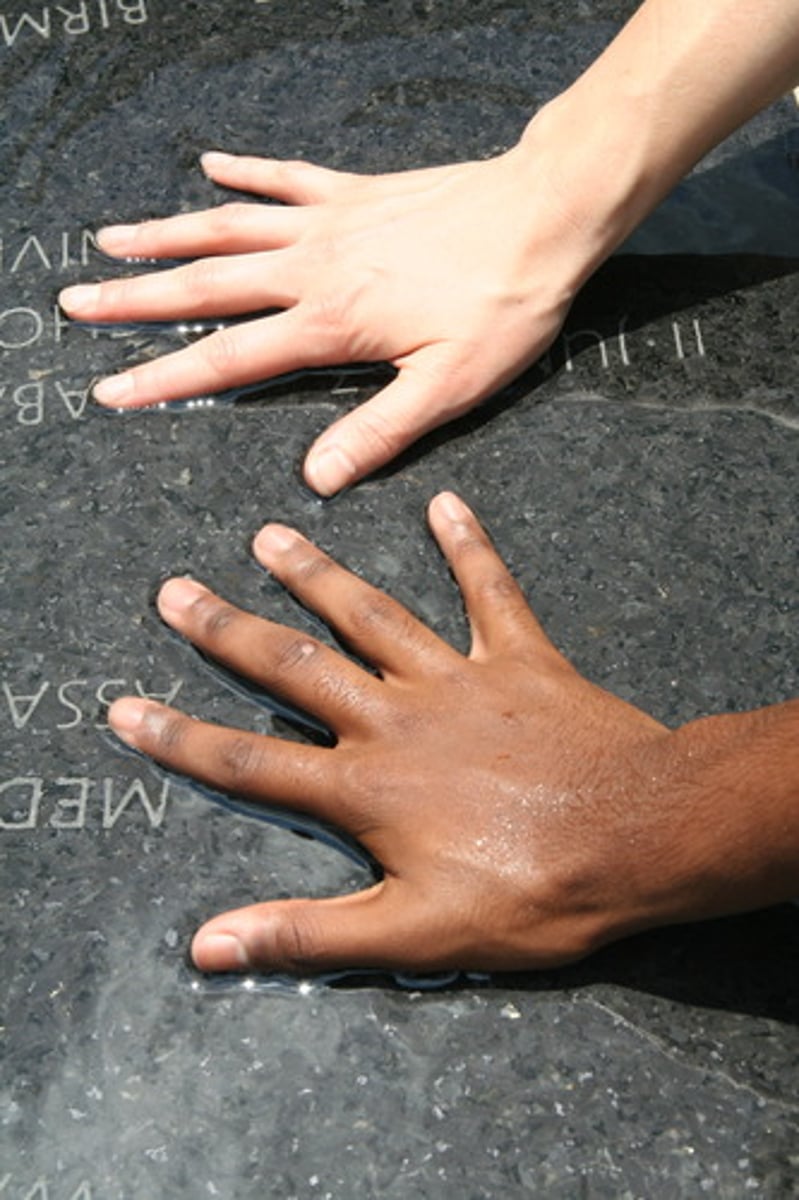
Reconstruction
the period after the Civil War in the United States when the southern states were reorganized and reintegrated into the Union (1865-1877)
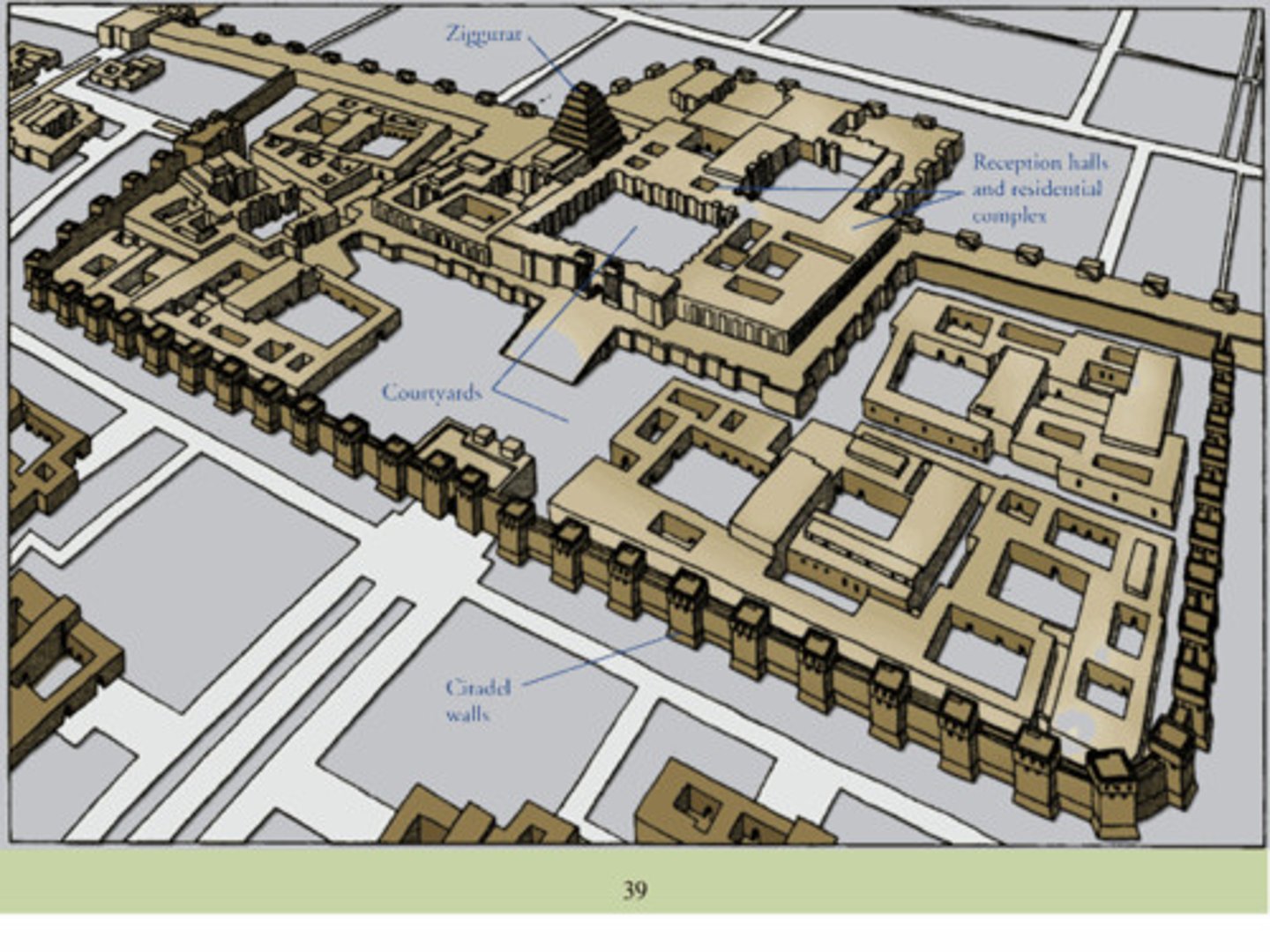
Abraham Lincoln
16th President of the United States. Developed 10% Plan to readmit states into the Union.
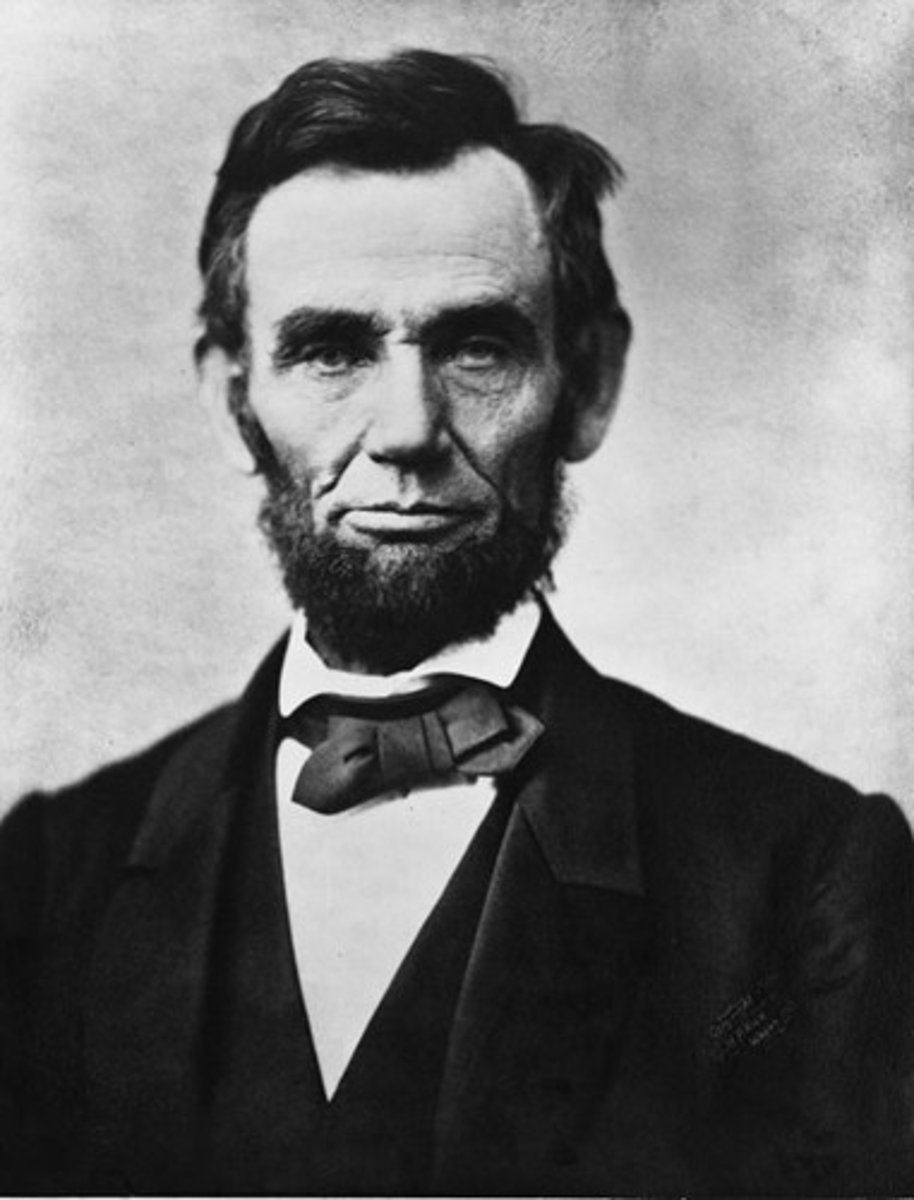
Freedman's Bureau
government organization set up to help ex slaves and poor white adjust after the Civil War. It provided medical care, food, and shelter. Also this group brought education, job training and help with gaining farm lands to ex slaves.
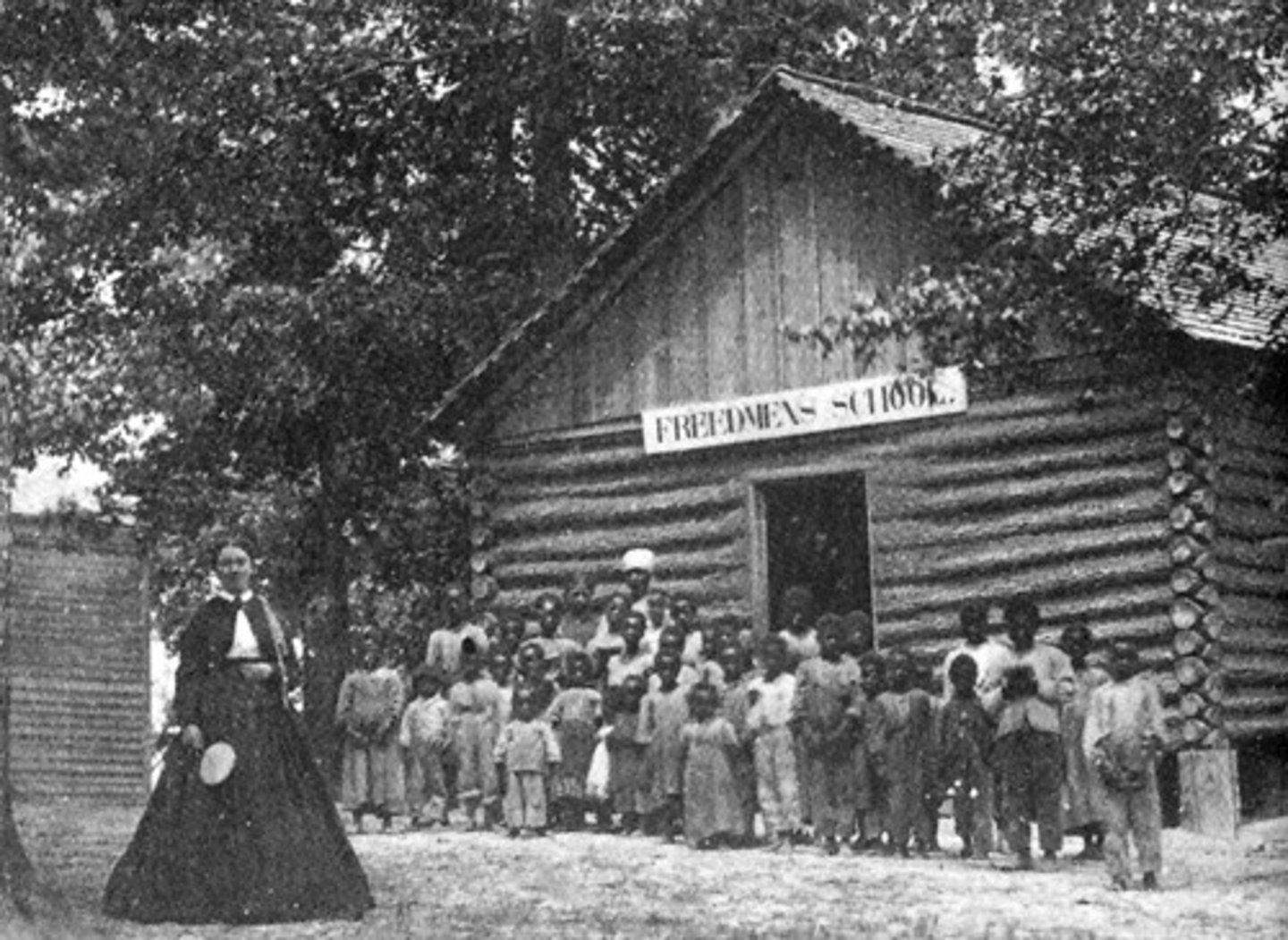
Reconstruction Act of 1867
Plan established by Radical Republicans to readmit the Southern states into the Union. Required the states to: 1) be divided into military districts. 2) no Confederates could serve on Constitutional Convention; 3) Ratify the 14th Amendment and 15th Amendment; 4) Military there to ensure African American men could vote
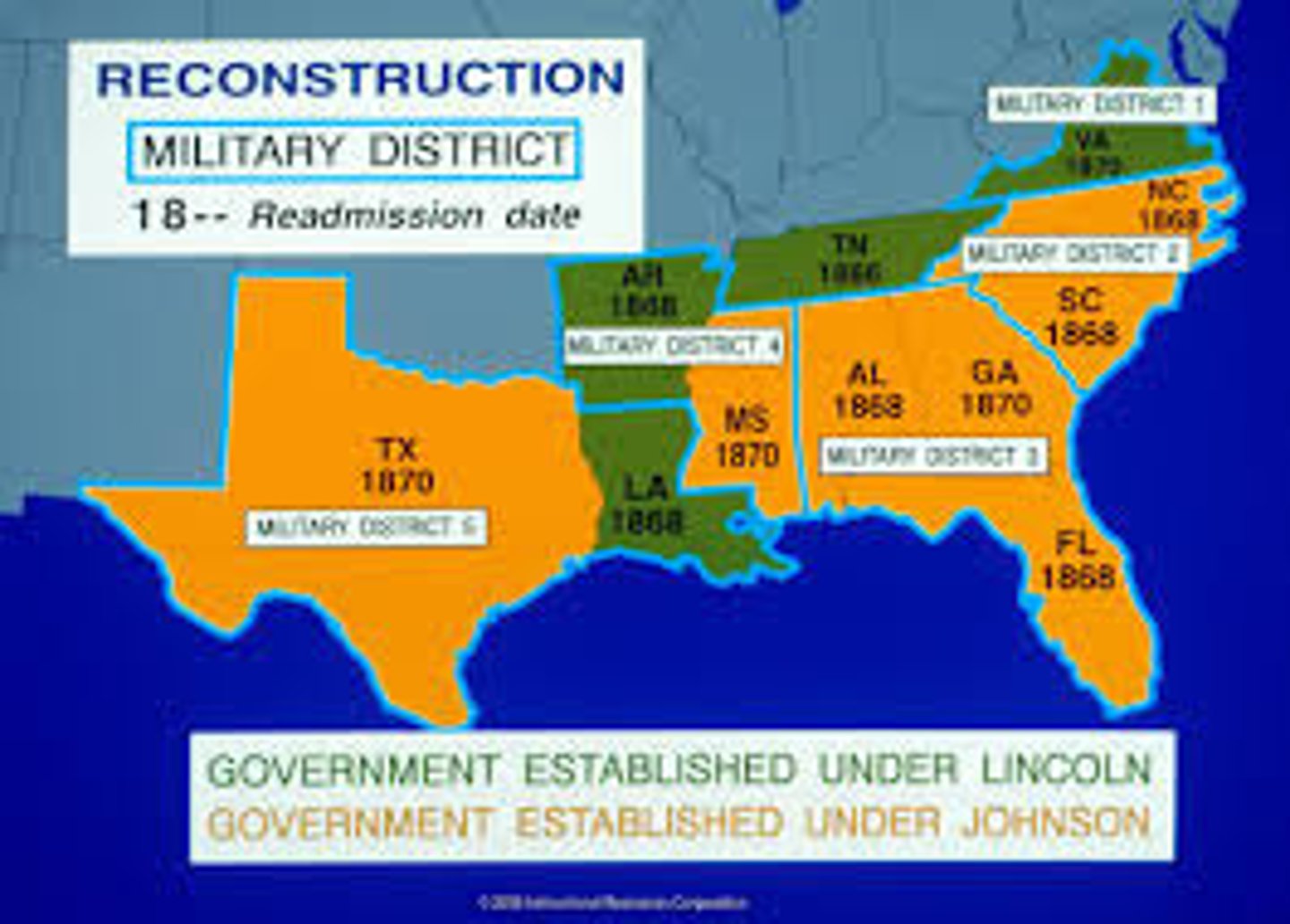
Sharecropping
type of farm system in which landowners rent out land and supplies to a family. In return the family pays the landowner a percentage/ share of the crop as payment. Creates a cycle of poverty in the South after Reconstruction.
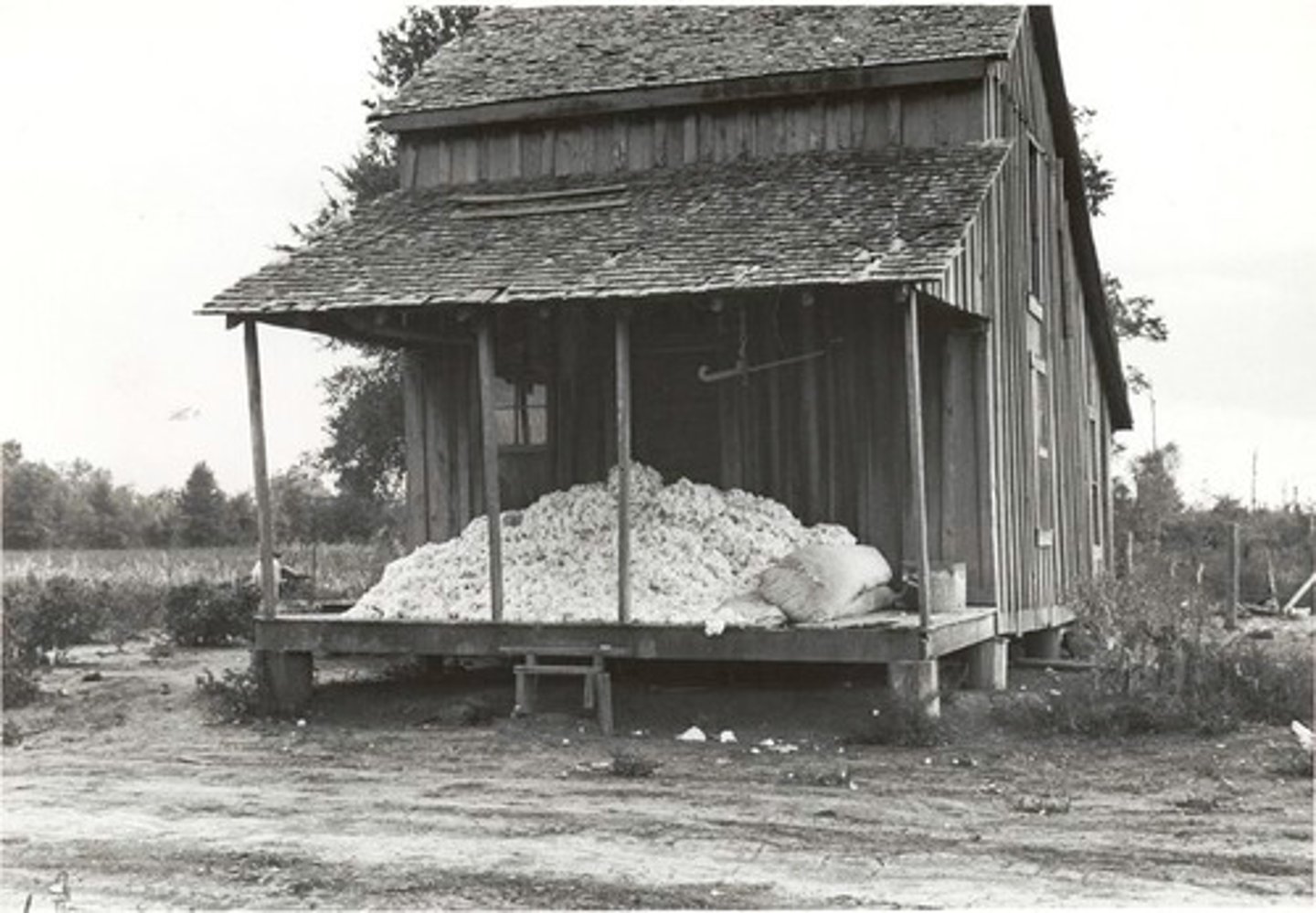
Share-Tenancy
Much like sharecropping, except that the farmer chose what crop he would plant and bought his own supplies
Tenant Farming
System in which a farmer paid rent to a landowner for the use of the land